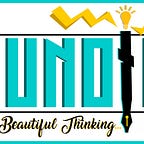Eunoia suggests: The Fountainhead
Remember that scene in 3 Idiots where Aamir Khan gives a working definition of a machine, but is immediately reprimanded by the professor, who wants a proper definition? In some ways, The Fountainhead is about that.
And remember the countless times you were told to write answers in a certain way, or to use pens of different inks in your assignments, or to make your projects in a specific way, or whatever, just to get more marks? If you happened to question this, you were told that, that’s the way things are done. In some ways, The Fountainhead is about that, too.
And lastly, remember the time when you did something just because your friends were doing it, or because it was ‘trending? All of this is exemplified in The Fountainhead.
It is hard to write in a concise manner exactly what all this book is about, solely because it is as much a book of philosophy, as it is a romantic drama novel. Simply put, it is the story of Howard Roark, an architect. It deals with his struggles of wanting to do what he believes is right, in a world where everyone expects him to conform to society’s ideals of right and wrong. It shows a world where an individual thinking for himself is shunned, and belonging to a group, conforming to ideals of mediocrity, and reveling in its glory is celebrated. Of course, the book is a lot more than that. It deals with the positives of capitalism, the tabloid nature of today’s media, and Ayn Rand’s widely debated philosophy of Objectivism. But at its heart, it is about the things we see every day in our lives and choose to either ignore, follow, or fight.
Published in 1943, this was Ayn Rand’s first major commercial success, and laid the groundwork for much of her subsequent philosophy. However, despite its thought-provoking content, it suffers from a few flaws as well. Its characters can often be one-dimensional and the speeches, tedious. At over 700 pages long, it also makes for a daunting read, making it unattractive to casual readers or those not very interested in long discussions about philosophy. And as with any piece of widely read literature, it has its fair share of detractors and supporters. Many people condemn the philosophy presented, and have called this nothing but a rant of egotistical elitists. Others wholeheartedly agree with what the author says, decrying society’s enforcement of conventions and censure of all those who dare to think different.
I think this is precisely why people should read this book. Whether you agree with Objectivism or think it is a pseudo-intellectual trap for gullible teenagers, this book makes you think. It makes you ask questions, and leads you to introspect, something which is very much needed in today’s world.
So whether you think everyone else in this world is just following the herd, or all these angst-ridden talks of being a rebel are just a phase, you should read this book. Not because your friends might be reading it, or because you think reading this might make you look smart. But simply for yourself. That, I suppose, is all this book is about.
- Prachi Srivastava
